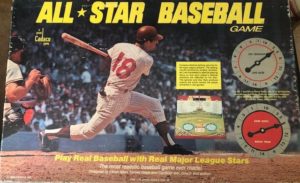As I launch this blog and get my first set of posts out there, I am watching the Los Angeles Dodgers play a “Summer Camp” game at Dodger Stadium against the Arizona Diamondbacks. The Dodgers have pummeled the Diamondbacks two games in a row and look ready for Thursday’s much-delayed Opening Day.
As much as the game on the field looks like the real thing, everywhere are reminders that what is taking place is as much surreality as reality. Instead of fans in the seats there are cardboard cutout pictures of fans. (I would buy one, but only if I could get my Angels fan coworker on there in a Dodgers hat and a shirt that read “Astros Cheat!” I doubt they’d allow it, and good luck getting him to wear the hat anyway.)
MLB scrapped the original start of the season when Covid-19 started to spread dangerously in March, and teams all suspended their spring training just a couple weeks before the scheduled season openers. That week when one sport after another postponed or canceled games, tournaments, and seasons, all the way up to the Olympic Games, resembled nothing in history. Sports sections shrank to nothing practically overnight.
Much of baseball’s time since was spent with players and owners making news for their inability to agree on the financial terms of playing, and their tone-deaf squabbles cost fans the chance to see more games than we’re scheduled to get now. Massive labor issues remain to be resolved in the long run, but we’ll have time to lament the chasm between the sides after this mini-season wraps up.
A 60-game season represents only 37% of a normal 162-game schedule, so little margin for error remains. Losing 3 games in a row in 2020 would be like losing 8 in a row in any other season. Debate has already started about whether any historically significant statistical performances, like someone batting .400 (which hasn’t been accomplished since 1941), would count in a shorter season.
The much larger question we should all be asking, however, is whether any of this is a good idea. Unlike in the NBA’s “bubble” environment in Orlando, Florida, MLB teams will be traveling from city to city and playing in their home stadiums throughout the 60-game season.
All this will launch while the United States watches Covid-19 cases mount and mount and hospitals nationwide begin to feel the crunch of being overwhelmed by ill patients requiring critical care. Across the country, cities and states are closing back down to keep as many people home as possible, and just now MLB is attempting to open operations in many of these hotspots. The government of Canada won’t let the Toronto Blue Jays play at home because of mandatory quarantine requirements for anyone entering the country, so a few days before the season starts the Jays have yet to find a temporary home.
We can legitimately ask what might halt this 60-game season (plus the all-important playoffs) before its scheduled finish. A handful of players have already opted out for health reasons, and several more have yet to join their teams because of positive tests. It’s easy to imagine a significant group of players on one team testing positive and having to miss a significant chunk of this short season, with dramatic impact on the standings. How many teams would have to suffer such challenges before many more players drop out or teams find themselves unable to field a healthy roster?
It is all much too surreal. These guys on TV look like they are playing baseball, but it feels like they’re playing a much more dangerous game.







